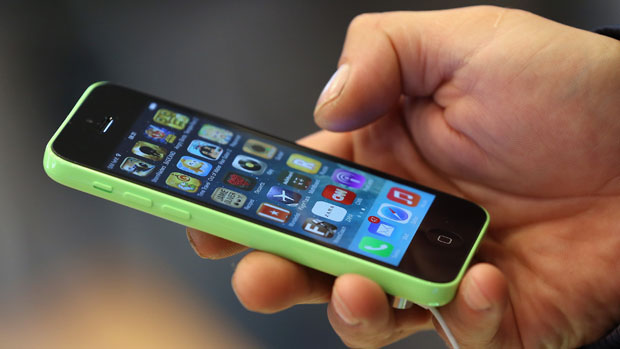5G will 'supercharge mobile web' with fibre-optic speeds
Scientists clock 5G speeds that would let smartphone users download 100 films in three seconds

A free daily email with the biggest news stories of the day – and the best features from TheWeek.com
You are now subscribed
Your newsletter sign-up was successful
Researchers have set a new speed record for the next generation of wireless data connections, opening the possibility that 5G devices could connect to the internet at the same speed as fibre-optic cables, the BBC reports.
What is 5G?
5G will be the fifth generation of mobile phone technology and follows on from 3G and 4G. Effectively, each new generation or 'G' represents a new milestone of wireless data speed.
The Week
Escape your echo chamber. Get the facts behind the news, plus analysis from multiple perspectives.

Sign up for The Week's Free Newsletters
From our morning news briefing to a weekly Good News Newsletter, get the best of The Week delivered directly to your inbox.
From our morning news briefing to a weekly Good News Newsletter, get the best of The Week delivered directly to your inbox.
In the early days of 2G, data networks were only swift enough to be able to handle text messages and phone calls. The arrival of 3G (which brought speeds of around one megabit per second (1Mbit/s) made it possible to access the internet, and 4G (approximately 6Mbits/s) now allows users to stream video and audio straight to their phones.
To give a sense of the difference in speed, a music album that would have taken 20 minutes to download via 3G would take just three minutes over 4G.
5G promises to up the ante again by offering wireless data speeds many thousands of times quicker than 4G.
What has been achieved?
A free daily email with the biggest news stories of the day – and the best features from TheWeek.com
Researchers at the University of Surrey's 5G Innovation Centre (5GIC) say that they have achieved speeds of one terabit per second (Tbps), the BBC reports.
At 1Tbps, wireless speeds could reach 65,000 times faster than 4G, which would make it possible to download a file 100 times larger than a feature film in just three seconds.
The figure is significantly quicker than previous records achieved by other scientists. Before this, the last record was held by Samsung researchers who managed 7.5 gigabits per second (Gbps) – just one per cent of the Surrey team's speed.
5GIC director Prof Rahim Tafazolli told news website V3: "We can exceed 1Tbps wirelessly. This is the same capacity as fibre-optics but we are doing it wirelessly."
What will 5G be able to do?
5G is expected to support the growth of the so-called Internet of Things, V3 suggests, allowing devices to communicate with each another without human intervention. It could also help run future services such as holographic projections and advanced forms of financial trading.
"An important aspect of 5G is how it will support applications in the future," Tafazolli said. "We don't know what applications will be in use by 2020, or 2030 or 2040 for that matter, but we know they will be highly sensitive to latency."
When will 5G arrive in the UK?
Realistically, the UK is unlikely to see networks running such high speeds before 2020. Steve Unger, the acting chief executive of regulator Ofcom, said in January that "5G must deliver a further step change in the capacity of wireless networks, over and above that currently being delivered by 4G". According to the BBC, the breakthrough by 5GIC brings such changes "one step closer".